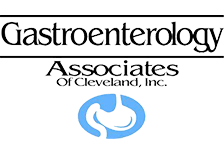What is hepatic encephalopathy?
Hepatic encephalopathy is a complication of liver disease that occurs when blood flow bypasses the liver (called portal hypertension) and enters into the rest of the circulation. This unfiltered blood carries toxins that enter the brain and affects normal function. This toxic effect on the brain is called encephalopathy which can be seen as altered level of consciousness, altered intellectual function or changes in personality/behavior. Muscle and reflex abnormalities are also present. These changes can range from mild to severe (which includes coma).
Some symptoms include poor memory, confusion, and sleepiness, being awake during the night and sleeping during the day, irritability and tremor. Encephalopathy is most commonly a complication of cirrhosis but can also occur in some other conditions.
How is hepatic encephalopathy treated?
The toxins that enter the brain are byproducts of the foods we eat and are also produced by the normal bacteria in the large intestine. Thus treatment is aimed at decreasing the amount of toxins that can be absorbed from the large intestine. Lactulose (a common brand name is Kristalose) alters the acidity in the colon which prevent absorption of ammonia, one of the toxins.
The correct dose of lactulose varies from one person to the next and it may change from day to day for each individual. The correct dose will cause 3 to 4 loose bowel movements per day. Depending on what you eat, it may be necessary to alter the dose each day.
Having loose stools every day can interfere with daily activities. Lactulose may also have the side effects of bloating, increased gas and abdominal discomfort. Despite these side effects, it is important to keep up with the lactulose to properly treat the encephalopathy.
Rule of thumb: If you or someone around you notices symptoms of encephalopathy, take another dose of lactulose. If symptoms continue with use of lactulose, contact your health care provider.
